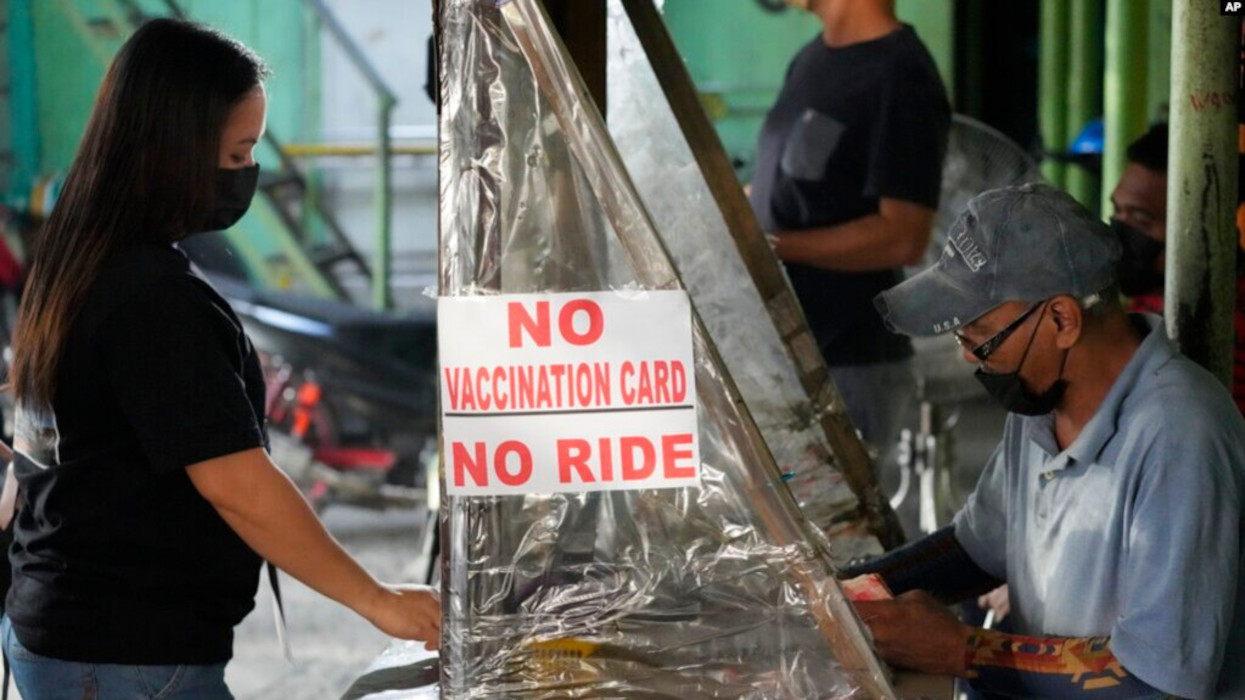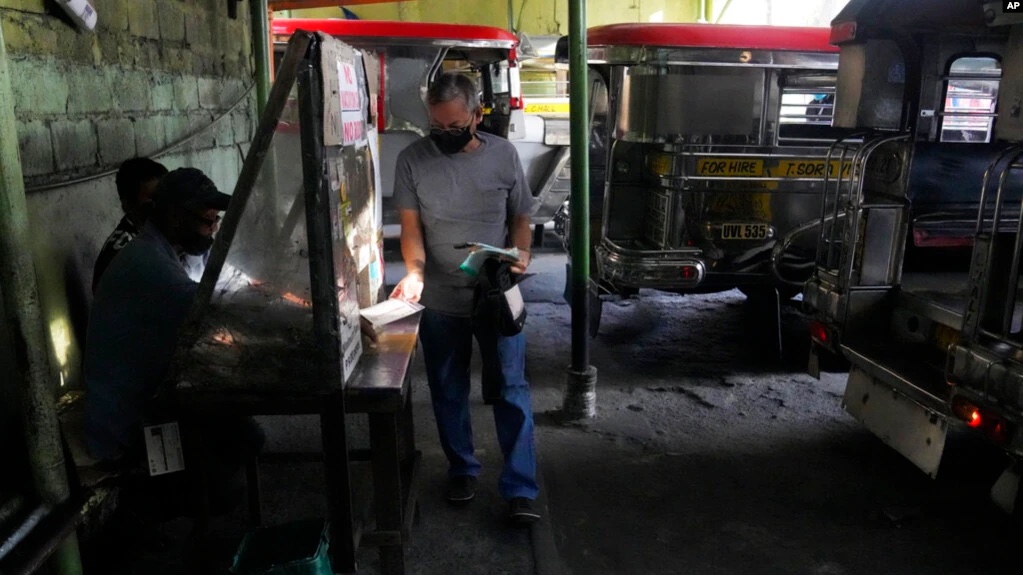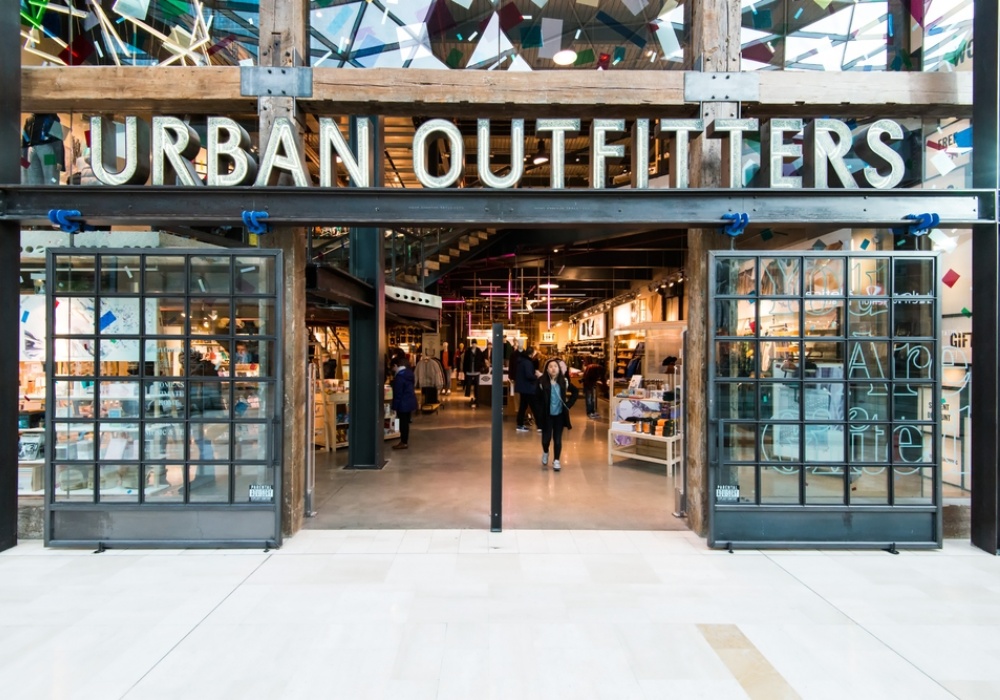Philippines Walks Back Ban
from admin on Sat, 02/05/2022 - 09:20

MANILA, PHILIPPINES —
The Philippines has suspended a heavily criticized policy banning the unvaccinated from public transportation in Metro Manila as a COVID-19 surge, caused by omicron variant, has subsided.
Daily cases in the Philippines rose from 400 in December to more than 39,000 in just a matter of days. The positivity rate, or percentage of positive cases out of those tested, peaked at more than 47%, as the country’s testing capacity remained low.
Hospitals were quickly overwhelmed after a brief holiday lull, but the Health Department said 85% of those admitted to intensive care units had not been vaccinated. Health care workers are exhausted, and many of those testing positive for the virus had to return to work immediately after recovering. Despite the record-breaking COVID-19 cases, the government did not impose a lockdown.
The Transportation Department implemented the “no vaccination, no ride” policy in Metro Manila, covering anyone taking public transportation starting Jan. 17, after President Rodrigo Duterte himself ordered the arrest of unvaccinated individuals who leave their homes.
Under the policy, unvaccinated or partially vaccinated individuals are barred from buses, jeepneys, trains and taxis, although unvaccinated people traveling for medical reasons, such as getting vaccinated, are exempt if they can show proof.
"Because it is a national emergency, it is my position that we can restrain [unvaccinated individuals]," Duterte said in a televised speech Jan. 6.
On the first day of the policy’s implementation, Jan. 17, police and transport officials apprehended hundreds of unvaccinated passengers and prevented them from riding buses, jeepneys and trains.
A TV interview of a partially vaccinated woman who had been prevented from boarding a bus went viral and sparked criticism of the policy.
"I'm so tired. What the government is doing is making me tired. I'm partially vaccinated. It's not my fault that my second dose is scheduled for February," she said.

After a barrage of criticism, the government was forced to temporarily walk back the policy on the second day of implementation, introducing exemptions, including for unvaccinated essential workers and those leaving their homes for medical reasons.
Following a trend around the world, the surge quickly subsided in February, as predicted by government and private experts, but the country is still reporting nearly 10,000 cases per day.
As the number of daily reported cases in Metro Manila dropped, the Department of Transportation has now temporarily suspended the policy as of Feb. 1. However, the ban will be reinstated once the city breaches a higher caseload.
Human rights, labor and mobility advocates have called on the government to revoke the ban, saying it restricts the exercise of fundamental rights, and calling it unnecessary, discriminatory and anti-poor, as most of the city’s 14 million people are commuters and cannot afford cars.
"Restricting mobility is not the answer to the gaps in the vaccination campaign, regardless of whether that's availability or accessibility to vaccines, or for a mere addressing of the continued misinformation about vaccination," Ira Cruz, director of AltMobility PH, a group advocating sustainable transport, told VOA.
There are more than 50 million fully vaccinated people in the Philippines, according to the government, but the country failed to meet its vaccination target last year.
Like many countries, the Philippines is battling vaccine misinformation, but resistance to vaccination is waning. The most recent poll showed that of Filipinos surveyed in December, only 8% are unwilling to be vaccinated, down from 18% in September 2021.
"Why people don't want to get vaccinated, that remains to be the responsibility of the government to address. What this is sounding like is that the government is giving up on addressing the gaps of a vaccination campaign and closing its doors to certain people," Cruz said.
He said it would be more useful for the government to provide a steady supply of buses, trains and jeepneys so there's enough room to follow public health protocols, including physical distancing.
“We call on the government to revoke the ban altogether regardless of the number of cases in the country,” Cruz said.






